#livre rare
Explore tagged Tumblr posts
Text
Race Humaine, Lève-Toi ! Par David Icke 💚🦁
Un livre à lire ici & surtout ailleurs, pour se faire une idée, débuter des recherches.
“Le Lion s’est Réveillé”
Il doit se trouver en PDF & il est en ligne à la vente. Celui-ci est là pour éveiller il est à moi ;) mais si quelqu’un le veut !
😻 LaNaturalezaDelAlma.com 📝 [email protected]

#David Icke#Livre Sur Les Réptiliens#Race Humaine Lève Toi#Conspiration#Complots#Franc-maçonnerie#illuminati#satanisme#Éveil#Ame#V1KCOEUR#La Naturaleza Del Alma#Lecture#Livre rare#Collection
1 note
·
View note
Text
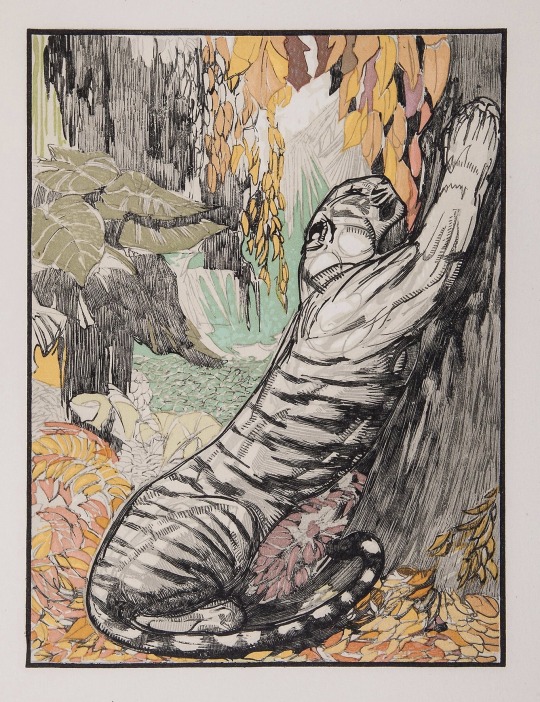
The Jungle Book by Rudyard Kipling
1919
Artist : Paul Jouve
#the jungle book#le livre de la jungle#rudyard kipling#paul jouve#1919#tiger#tigre#rare books#jungle
144 notes
·
View notes
Text
0 notes
Text
Liking weird proship or abusive and toxic ships cuz they r famous: ewwww booo booo
Liking the rarest of pairs because they would be healthy and nice to the other: yipppieeee
(I need to go back to spread some of my ship propaganda like JeiRook, FloyNya, VilIde, Green Apple etc)
Tfw the most horrendous ships are some of the most popular

coughs so hard Leojami, Jamikali, Leorug and Rollomal. There’s more I want to say but I’m gonna get jumped
#twisted wonderland#twst#disney twst#tena talk#livr laugh love rare but healthy pairs#i will overthrow multiple nations for JeiRook and FloyNya
65 notes
·
View notes
Text
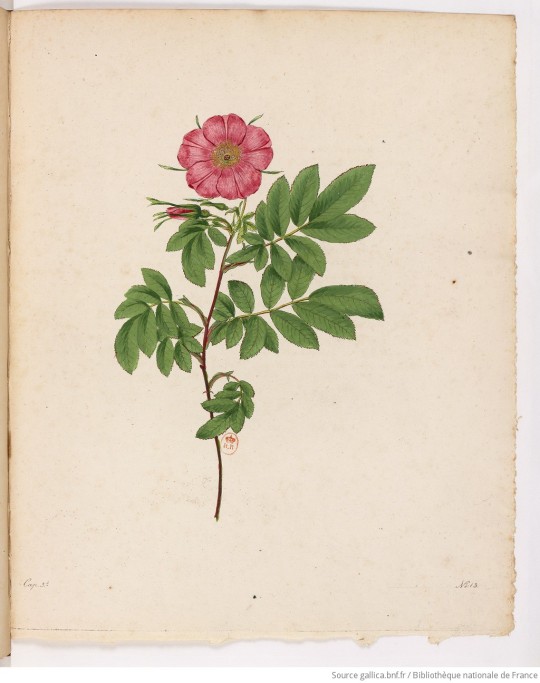
Rosa virginiana simplex taken from 'Les Roses dessinées et enluminées d'après nature' by M. le Dr Roessig. Author - Carl Gottlob Rössig.
Published by Comptoir d'industrie.
Bibliothèque nationale de France, département Réserve des livres rares.
85 notes
·
View notes
Text
ℓε ℓเѵ૨ε εƭ ℓε ρℓαเรเ૨

📖Second submission for the Dragon Collab hosted by @flurrys-creativity.
📖Pairing: Knowledge Dragon! Lee Heeseung x Organizer! Reader (f)
📖Genre: smut
📖Trope: employer/employee, idiots to lovers
📖Au: modern au, dragon au, hybrid au
📖Rating: 18+, MDNI
📖Word Count: 2,904
📖Warnings: penetrative sex with no barrier, kama sutra references, slow-paced sex, breast play, begging, usage of tail during sex, horn tugging (it's a dragon kink okay)
📖Summary: when a dragon hires you to organize his horde of information, you find that he wants to add you to his treasure
1- La Gemme at l'extase with Hyunjin {fantasy dragon} | 2- Le Livre et le plaisir with Heeseung {modern dragon} | 3- Le planète and le ravissement with San {sci-fi dragon}

Never in a million years did you think your love for organization would get you a job working for a dragon hybrid.
Lee Heeseung, a hoarder of knowledge, was your employer. After a very enjoyable interview, in which you were under the impression the dragon hybrid was flirting with you, you were hired on the spot.
The owner of the sprawling renovated mansion gave you a tour immediately, to show off his hoard, of course.
“You can pick whatever suite of rooms you’d prefer,” Heeseung explained. He threw his arms out to emphasize his point. “But you will live here. I don’t want any flimsy excuse such as transit being a reason why you couldn't work more hours.”
He was haughty, this new employer of yours. He spoke as if everything he said was a fact. But if you had had thousands of years absorbing countless texts of knowledge, perhaps you’d speak that way too.
“Where would you like me to start?” You wondered tentatively, as the both of you strode through featureless hallways.
“Here’s probably good,” Heeseung announced.
He threw open two large doors and you whimpered in pain. Books, scrolls, even thumb drives, were thrown carelessly into piles here and there in the large room.
“‘Suppose it was used as a ballroom once but I have no need for dancing,” Heeseung elaborated.
You stood up a little bit straighter, determined to do a good job, even if you felt overloaded with the amount of work. “I’ll make the appropriate arrangements.”
“Good,” Heeseung nodded firmly. “It’ll be good to have a new smell around here.”
And then he sent you a crooked smile that made your heart skip a beat. This dragon was dangerous in ways that had nothing to do with breathing fire.
If you were being honest, you rarely saw the dragon hybrid after that. He didn’t care to keep tabs on you and it allowed you plenty of breathing room to do as you pleased.
And boy, was there a lot of work to do.
Just when you thought you had gathered all the floppy disks, you’d discover a new room, and have to start all over again. You had an absolute meltdown when you discovered a few towers of computers with audio books in the basement that was meant to store kegs of liquor, but luckily, no harm had befallen the electronics.
That incident made you track down your employer. You found him in one of his many studies that fine rainy morning. Flashes of lightning reflected off his glasses and the tiny horns protruding from his hair. His tail swishing contently like that of a cat pushed you over the edge.
“Do you have no care over your treasures?” You shouted at him. “You simply dump them willy-nilly!”
“Isn’t that a part of your job now?” Heeseung replied, eyes glued to his book of Plato.
“I organize, yes,” You raged. “But I am not in control of you finding more books and throwing them into a bathroom that leaks!”
“Don’t be ridiculous,” Heeseung denied. You felt your hackles lower. Then he said, “I only put the audio recordings in there once.”
You let out a noise of frustration and left immediately after that.
After that, you did your best to avoid the irritating dragon hybrid. Your job was to organize his hoard, after all, not engage in frustrating conversations.
You fully dove into your job once again, pushing into the physical aspect of moving books around. You were careful with the older books, donning gloves to inspect the titles and dates they were published. Scrolls were a bit harder to categorize but you enjoyed rolling them and applying certain ribbons to keep them in their historic eras.
Focusing on your work eased your heart and eventually you started to feel proud of what you had accomplished. You kept meticulous notes of how everything was organized, for reference for your employer, of course.
Said dragon hybrid found you one day when you were struggling with a container of portable hard drives.
Heeseung walked in waving a book. “I found the original copy of The Hobbit! The version before JR Tolkein retconned it for the trilogy--”
You felt the dragon’s eyes upon you and you felt disgusting immediately. What did he see? A sweaty, gross blob that he had hired to paw through his precious treasures? You stared at the book Heeseung had, refusing to meet his eyes, fanning yourself. You were overheated and about to take a break anyways.
“I’ll put some gloves on. I know exactly where it’ll go. I found a lovely poem about poppies written in World War One, it’ll fit nicely there,” You murmured, looking around for your gloves.
Heeseung completed the steps it took to bring him flush with your body. He reached around you and pulled your gloves from your back pocket.
“They’re here,” he said, a slow smile pulling his lips as he offered them to you.
You swallowed, reaching to take the gloves from him. “Ah, thank--”
You were jerked forward when Heeseung yanked on the gloves instead of releasing them to you. “You smell like dust and books,” he informed you. Why did it sound like he was saying you smelled delicious?
“Well, I am working hard here, Heeseung,” You informed him, waving your hand indistinctly around the room.
His eyes moved up and down your disheveled form. “I can see that.”
You refused to meet his eyes and tugged discreetly at the gloves. “If you would please…?”
“I mind greatly, in fact,” Heeseung murmured.
Was it just you or were his lips getting closer to your face?
“Heeseung,” You whimpered.
The dragon hybrid’s pupils blew wide. “Say my name like that again.”
You shook your head. “I should get going.”
You dropped your hold on the gloves and attempted to circumvent your hybrid dragon boss. Heeseung had other ideas, however. His tail wrapped around your waist and tugged you back to his vicinity.
“Where are you going, little bookworm?” Heeseung drawled.
You got shivers from the nickname. “To my room.”
Heeseung clucked his tongue mockingly at you. “I don’t think so. Why are you running away from your desire?”
The dragon hit the nail on the head. That was exactly what you were doing.
“You’re my employer. We shouldn’t cross any lines,” You argued softly.
Heeseung cocked his head. “Who’s to say what we do is wrong? No one governs me and my treasure.”
Goosebumps littered your body. “Stop that.”
Heeseung chuckled deeply. “I like you. I think I’ll keep you.”
You had a moment of courage, dragging your eyes up to meet his. The lizard-like slit that served as a pupil was almost overtaking his silver iris’. “Where would you put me? With the books? The floppy disks?”
“In my bed,” the man said with no hesitation in his voice.
“Will we make it to your bed?” You wondered.
“No.”
Heeseung’s strong fingers dug into your hair as he held your head in place to kiss you. It was slow and sensual, and you felt like you were drowning in desire. His tongue swept along the seam of your lips and you automatically opened for him. You felt his moan against your lips as he plunged his tongue inside your mouth. His tongue slowly coaxed yours into submission, to the point when Heeseung ended the kiss, your tongue came out to chase his.
Heeseung smirked confidently. “That’s a good look on you.”
You struggled to think through the lust-filled haze your head was currently. “I--”
Heeseung’s fingers untangled themselves from your hair and opted instead to wrap around your wrist. “Don’t worry, I’ll take care of you, my little bookworm.”
Take care of you he did. Amongst his treasures that you had been busy sorting, he rid you of all your clothes, and his own. The look of absolute hunger on his face never disappeared. It made your heart beat, being viewed as one of the scrolls he snatched up and wanted to read. The loud obsession written all over his face made you feel something a little bit more than lust.
Heeseung bade you to lay down and his eyes twinkled, a slight smile pulling at the edge of his lips. “If you wouldn’t mind, I’d like to try a position from the Kama Sutra. It's called Splitting the Bamboo.”
After you nod, curious as to what Heeseung wants to do with you.
You watch with interest as he straddles your left leg and pushes your right leg upwards. He presses wet, open mouth kisses along your calf. He moved up your leg until his pelvis was lined up with yours.
“Can I fill you up?” The dragon hybrid asked you seductively.
You nod again, your mind filled with only thoughts of Heeseung--all thoughts of your ‘boss’ gone out the window.
Heeseung bit down on his lower lip as he pushed into your wet core. The process of sheathing himself inside of you was pleasurable, making you mewl as he did so. A confident smile continued to pull at Heeseung’s lips; as if he took pride in making you feel good.
“Does my little bookworm want to be pleased some more?” He crooned softly.
You couldn't decide if he was being condescending or looking to take care of you, but either way your lower half became wetter at the phrase. “Move, please,” You pleaded.
Heeseung settled into gentle waves between your legs, slowly building the pleasure inside of you. Sweet, gentle kisses littered your leg that remained slightly over his shoulder. For someone who was so matter-of-fact and flirty, you had not expected such gentle lovemaking. It was making your mind swirl dangerously.
You reached down to swipe your finger through your folds to play with your clit but Heeseung’s tail wrapped around your wrist and intercepted you.
“I’ll get you to your climax,” He informed you coolly. “Be patient.”
The maddening pace Heeseung set drove you wild. You begged, you raged, you negotiated but Heeseung would not speed up his thrusting. If anything, he played with your body, as if your words were simply buzzing flies around his head. He would grip your breast, squeezing appreciatively, tweaking your nipple but never did his fingers flirt with your clit.
It felt like hours that you were in a lust-filled haze, your stomach curling and winding with pleasure. “Please,” You gasped, “Please, I wanna come.”
“You should appreciate the time,” Heeseung hummed. “This is an artform.”
You let out a groan of frustration, clawing through the lust, and reached up to grab Heeseung’s horns. The hybrid let out a breathy cry, like you touching his horns did something for him. You both froze.
Heeseung changed positions, pressing your knees to your shoulders. You groaned at how deeply he was inside of you now. He placed both of your hands on his horns again. “Hold on,” he instructed.
Heeseung lost his poise as you held onto his horns. His thrusts became sloppy and quick. A groan grew in his chest and rumbled out of his mouth. All you could do was be a receptacle for his passion and you weren’t sure you wanted it any other way. His dick was hitting so deep inside you that your jaw fell open as your climax wound tighter inside of you.
“Oh gods, Heeseung!” You shouted out his name as your climax hit you like a train.
Heeseung arched his back and his eyes rolled into the back of his head as he came inside of you. He was muttering ‘mine,mine,mine’ under his breath as his hips chased out his own climax.
All you could hear for a while was Heeseung’s heavy breathing and your whimpers as you could feel his cock twitching inside of you. You had most definitely NOT expected that when you got hired.
Then, abruptly, Heeseung was removing himself from you and gathered his clothes. “You should clean up and take a break. You worked hard today.”
You watched Heeseung as he wandered out of the room without another word.
You clutched your clothes to your body, feeling foolish. Everything was simply a transaction for the dragon hybrid. Obviously he thought he could fuck you and then move on. You tried to pick up the pieces of your heart off the floor along with your discarded clothing. But it was hard.
After the sex session in the room that held most of the modern books Heeseung hoarded, you were unsure where the two of you stood. It had been lovely and Heeseung certainly hadn't ravaged you like a beast, but without any words to soothe your anxiety, you spiraled days later.
“It’s fine,” You spoke to yourself out loud.
You decided to rearrange the floppy disks according to color, certain your brain couldn't handle any actual, productive organization at this time. “I’m just another piece of his hoard, after all. He can fuck me then discard me. No strings attached.”
My little bookworm~
The nickname was infuriating, to say the least. You had to admit it matched the scenario, not to mention it made you shiver in a good way the way he crooned it, but infuriating nonetheless. What did it mean?!
“Nothing, it means nothing,” You muttered.
You couldn't decide if a floppy disk was cobalt or purple and tossed it in frustration.
“And you said I was the one that didn’t treat my treasures with respect,” Heeseung mused out loud behind you, scaring the shit out of you.
“Heeseung!” You exclaimed, jumping up like you had been caught red-handed.
The dragon hybrid cocked his head curiously at you. “What’s got you in such a mood, little bookworm? Usually you hum and are quite happy to do your job. It’s why you got it, you know. You said you loved to organize. Such happy vibrations are good for the aura of my hoard. What’s got your horn in a twist?”
Dragons had weird sayings. Aren’t their horns already twisted?
“Nothing,” You couldn't help but pout.
What was the point of talking about it when you felt silly in the first place? It was just sex, after all. Or that’s what you tried to tell yourself.
Heeseung had his tail draped elegantly over the crook of his arm, almost like a lady with a long train of her dress. He took a step towards you. “Do you need to unwind? Perhaps we could--”
You threw your hand up, stopping him mid-sentence. “That’s what got us here in the first place, Heeseung, I’d rather not.”
The dragon hybrid sent you a confused look. Even with his eyebrows furrowed, he looked delectable. It wasn’t fair. “Did you not enjoy it?”
“I did!” You stomped your foot for emphasis. “That’s the point! I enjoyed it so much, I don’t know what my heart feels anymore. And you clearly don’t have one.”
The corner of Heeseung’s lip pulled up in a sneer. “Are you saying dragons don’t have hearts? I didn’t think you were one of those humans. Good enough to fuck but not good enough to give your heart to?”
The silly statement slapped you in the face. “What? No, I’m saying you’ve confused me! I think I might like you but you’re so cool and collected. You patted me on the back and sent me on my way afterwards for christ sake!” Your head hung low in defeat. “Clearly I’m the only one that’s feeling anything here.”
Heeseung chuckled softly. “Oh, humans are ridiculous.”
Heeseung pulled you close to him and nuzzled your cheek. “You’re a part of my hoard now, little bookworm. I claimed you as my own. Doesn’t that mean anything to you?”
“That I’m your property?” You stated bluntly.
“You are mine,” Heeseung emphasized. “Mine to tease, mine to tempt, mine to love.”
You raised your head hopefully. “So you did feel something for me when we slept together?”
“I’m a dragon,” Heeseung said teasingly, winking down at you. “I feel deeply about everything. It was up to your human heart to catch up.”
“Well you certainly don’t show it well,” You continued to pout.
Heeseung let out a noise, caught between a growl and a laugh. “I’ve given you a place in my mansion, let you touch everything I cherish, including my body, and you say I don’t show it well? Should I gift you the scroll that Achilles wrote to Patraclus? Shall I find you a scribbled piece of paper with Romeo’s lines to Juliet? Share with you the movie Titanic where great love conquers all? What would you like of me, little bookworm? I would do it all.”
You gape at the most long winded speech you had ever heard from Heeseung. If you were being honest with yourself, you’d listen to him all day if you could. But it wasn’t about the lilt of his voice, it was about the contents. Who knew your haughty dragon boss could wax poetic so romantically?
“That would do it, I suppose,” You couldn't help but sulk.
Heeseung laughed. “Didn’t I say I liked you and that I was going to keep you?”
You swallowed, remembering the moment vividly. “Do I still belong in your bed?”
Heeseung’s pupils blew again but instead he responded with. “You belong in my heart.”
As it turned out, it was Heeseung that had something to teach you about organization.

1- La Gemme at l'extase with Hyunjin {fantasy dragon} | 2- Le Livre at le plaisir with Heeseung {modern dragon} | 3- Le planète et le ravissement with San {sci-fi dragon}
#lee heeseung smut#lee heeseung x reader#enhypen smut#heeseung smut#enha smut#heeseung x reader#enhypen x reader#enha x reader#dragon collab trilogy#❂enha#topaz's work#recent
68 notes
·
View notes
Note
au - younger john wick in the ruska roma as a ballerina vincent who is a pianist and plays for the theatre sometimes send ask
Send ask? Nah, I’m sending a whole poem. It’s really bad but that’s okay.
I tried to make the English and French rhyme with each other. I hope I did okay with Google translate helping me! I didn’t pay any attention to number of syllables though, that’s…not gonna happen hahaaaa. Also, I guess I’m ignoring canon and assuming they’re roughly the same age in this.
⚜ 𝒫𝑒𝓃𝓈é𝑒𝓈 𝒶𝓊 𝒫𝒾𝒶𝓃𝑜 [Thoughts at the Piano] & 𝒯𝒽𝑜𝓊𝑔𝒽𝓉𝓈 𝑜𝓃 𝓉𝒽𝑒 𝒮𝓉𝒶𝑔𝑒 ⚜
Qu’êtes-vous lorsque vous bougez harmonieusement dans la lumière? [What are you, when you’re moving seamlessly in the light?]
What are you, pianist? Brilliant, precious rare…
Le mien pendant une demi-heure, en mouvement sur ma chanson. [Mine for half an hour, moving to my song.]
For half an hour, I have a peaceful purpose. Then you’re gone.
J'espère que je joue bien pour vous. Mes mains tremblent... [I hope I play well for you. My hands are shaking…]
You make me steady with determination. I could dance a year en pointe.
J'aime quand tu danses. Je vois votre terrible cruauté. [I like it when you dance, I see your terrible cruelty.]
I like it when you play, I see your innocent beauty.
Dans vos yeux, il y a de profonds bassins de vengeance. [In your eyes, there are deep pools of vengefulness.]
Behind your eyes, there is a hollow, lonely trance.
Je t'ai vu cacher un livre d'histoires d'amour. Tu tuerais par amour? [I saw you hide a book of love stories. Would you kill for love?]
I saw you crying in an empty opera box. What do you live for?
Une ombre marche au-dessus de vous : cette femme redoutée. [A shadow walks above you: that dreaded woman.]
A shadow waits in France, to take you from me.
Je mettrais mon couteau contre elle si je le pouvais. [I would put my knife against her if I could.]
If only I could cut him down and let you stay…
J'espère que nous nous reverrons. Ne m'oubliez pas, s'il vous plaît. [I hope we meet again. Don't forget me, please.]
I’ll find you again. Keep a song alive within you for that day.
64 notes
·
View notes
Text
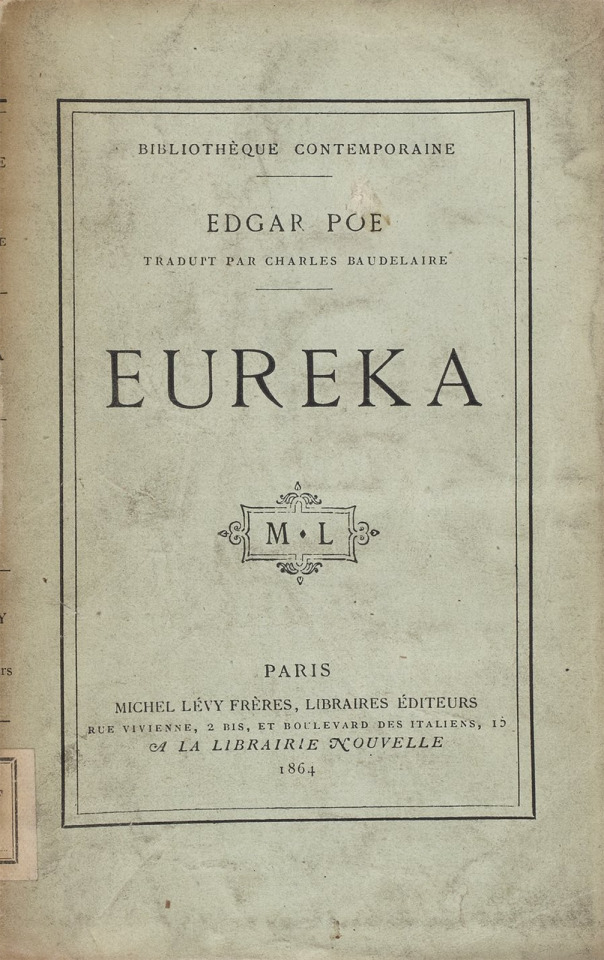
Edgar Allan Poe, (1848), Eureka, Translation by Charles Baudelaire, «Bibliothèque contemporaine», Michel-Lévy frères, Paris, 1864 [Département Réserve des livres rares, Bibliothèque nationale de France, Paris]
#graphic design#book#cover#book cover#edgar allan poe#charles baudelaire#michel lévy frères#bibliothèque nationale de france#1840s#1860s
27 notes
·
View notes
Text
i went out to browse around the markets and antique shops yesterday and at one of the book stalls, there was, in excellent condition, a copy of the sound pattern of english by chomsky and halle. just randomly, admist a bunch of old livres de poches and art books from the 80s. despite having studied linguistics for 4 years, i had only ever read from pdfs i had never seen a physical copy before yesterday. my friends were like oooh what did you find and i had to tell them "nothing much just one of the most important books ever published in the field of linguistics." they were not impressed as i was, which tbf is understandable bc i was deffo acting like i had just found some rare limited first edition there at that book stand.
#i miss chomsky...#never fucking thought i'd say that in a million years...#but i do i miss him#and halle too but yk i never had the same gripe with him#linguistics#personal
16 notes
·
View notes
Text
An analysis of the most important scene between Kerubim and Joris.
Aka, Liveblog - Dofus, livre 1 : Julith [PART 7]


While Kerubim does want to help and care for Lilotte, he draws a line at getting Joris into a dangerous situation. He's mad at both of them for this stunt.
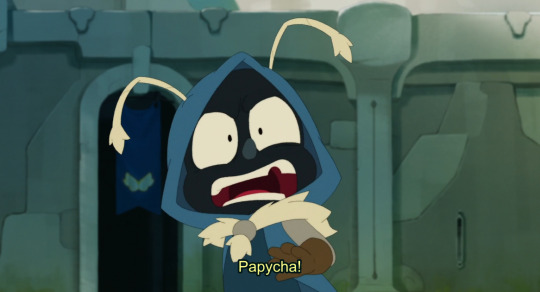
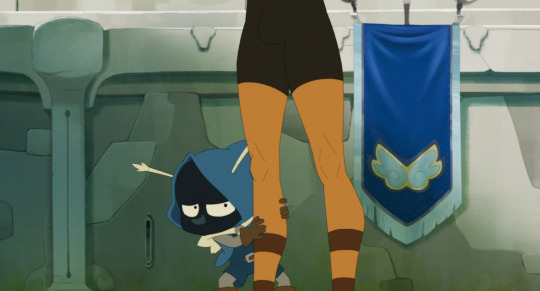
Joris isn't a kid who acts out or disobeys that often, so seeing Kerubim this pissed off is... very rare. Especially with that anger directed at him.

To make the argument less severe, he tries to present Kerubim with his new achievements in something that is important to him. So that maybe some semblance of pride for him, will get Kerubim to be less mad.

Kerubim shuts him down without any explanation, despite knowing how important sport is to Joris because the stress of Joris being in danger, and also deciding to be ~rebellious~ on this day of all days, is genuinely frying his brain.
But from Joris's pov, he's just being shitty. Just really shitty.
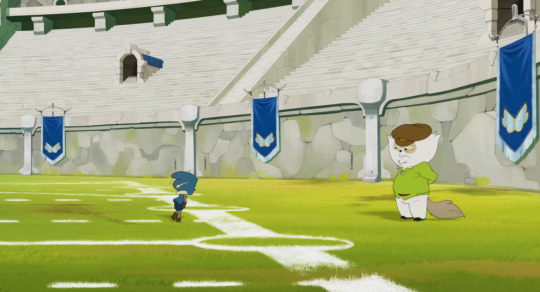
Yet, it is important to note, that at first, he goes along, and leaves Khan. Joris isn't really rebellious as a person.

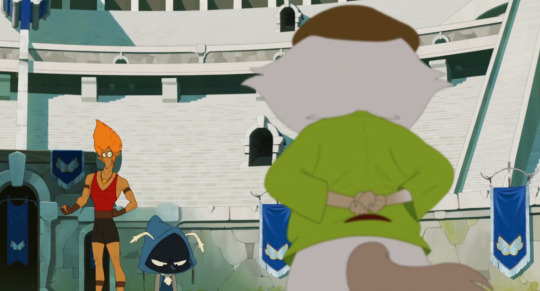
Another thing that goes deeply wrong with this argument is Kerubim snapping at Joris's idol. Now, he has basically implied that both one of Joris's main interests, and someone Joris loves and looks up to, are worthless to him.
We know that's not what Kerubim means. Kerubim is terrified, and the terror made him angry at Joris, for scaring him further.
Chances are, when he got home and found nobody, his first thought wasn't that he and Lilotte ran away for boufbowl reasons.

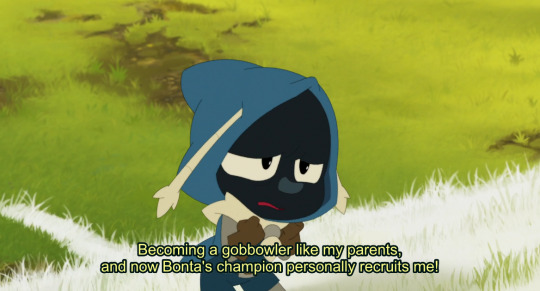
But that devaluation is exactly what Joris hears.

The face journey Kerubim goes on in this shot is very interesting. I really do think Kerubim HATES Joris making up parents. He hates it because he knows the truth, and it hurts him, he hates it because he is his parent, and he hates it because feeling jealous of some imaginary constructs is just pathetic.
But he hasn't really said it out loud because fine, whatever, it's normal for a child to make things up. Doesn't mean it doesn't hurt. Doesn't mean he doesn't think it's stupid, and that it isn't maddening to have this brought up when his mom is hunting them down and might hurt him.
However, Kerubim is a hypocrite:
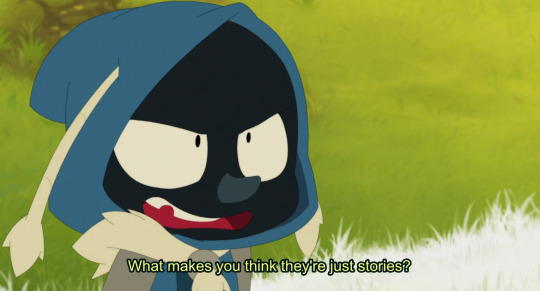
"Making up stories" is something Kerubim has done for 10 years, and the fact that half of them are redacted, censored, or just actually made up, is something Joris accepts, — even values.
"Rules for thee, but not for me," is how Kerubim sounds while complaining about this.
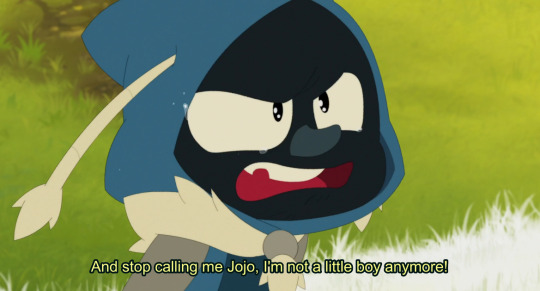
And he's neglected to, uhhh... read Joris's mind to understand the yet unvoiced truth:
Joris despises many things about the way Kerubim treats him.

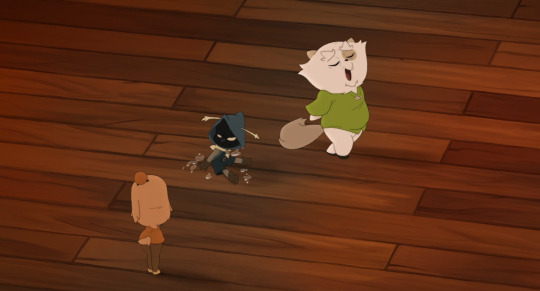

He wants Kerubim to stop touching him whenever he wants to, he wants him to stop calling him whatever the hell he wants, and he wants him to stop lying.
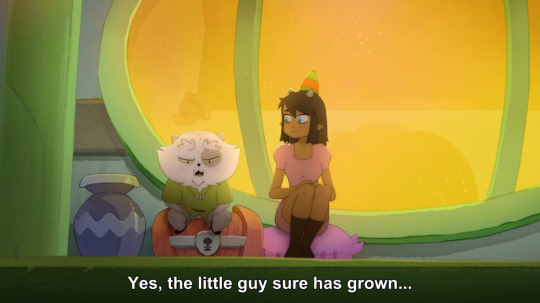
He would never say this out loud unless he was this mad, because he knows that it will upset Kerubim, and he doesn't want that, because the man is the only family he has, and he's already depressed.
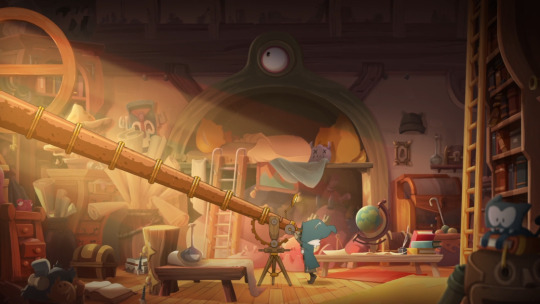
Kerubim doesn't want him to ever grow up into an adult, become independent, and move out. He likes Joris cute, huggable, "doesn't say no to anything I do to him"-ish, and dependant, because that way, he won't leave Kerubim alone. He isn't exactly subtle about what he wants from Joris, and the only thing Joris can do about this, is just feel angry silently.
This is especially poignant, because we know Joris doesn't look his age, even as a ten-year-old. He gets treated like a small child, both inside and outside his own home.

Joris, of all the people in the whole world, yelling at him, is how Kerubim understands that he fucked up badly. It's over. It's more than over — he didn't just bomb this conversation, he nuked it.
Joris yelling at him is like a canary in a mine dying. He really hurt him this time.
What follows is, quite honestly, one of the most important moments for Joris as a character. These are things he says angrily, just to hurt Kerubim as much as possible, — yet there's a grain of truth to all of this, they are Joris's actual, real thoughts on their life, just wrapped up in anger.
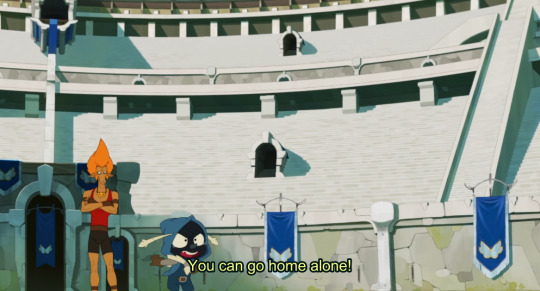
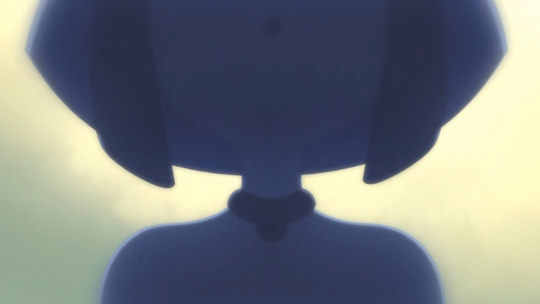
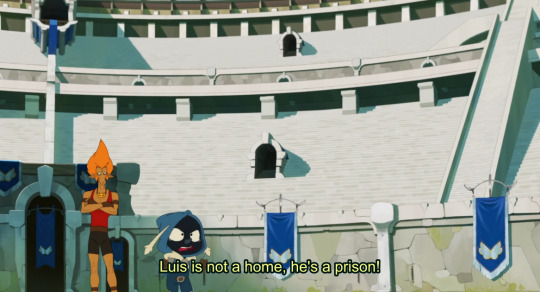

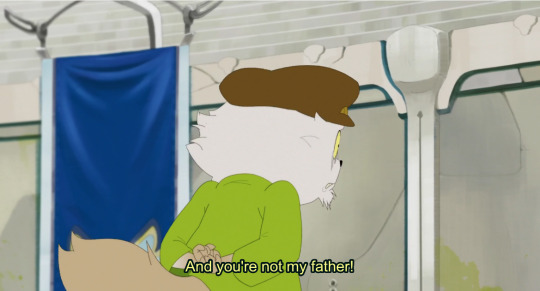

Joris correctly identifies and attacks Kerubim's three biggest insecurities, — Joris leaving him, his own failures as a father, and their relationship being built on lies from the very beginning.
I think Joris has thought a lot on the ethics of their situation. Kerubim isn't his biological father so... who exactly gave him the right to raise Joris in these conditions, and take advantage of him for the sake of not feeling lonely and unwanted? I am sure, these are thoughts Joris chastised himself for, and yet...
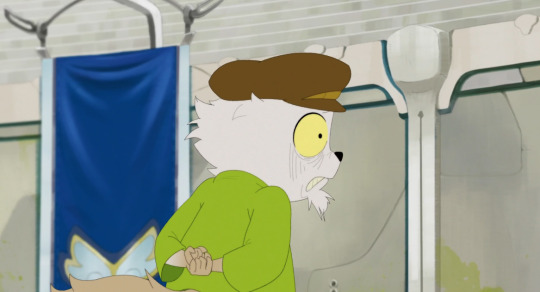
This is the worst thing Kerubim has heard in the last ten to twenty years. This is his nightmare scenario. Did he miss all these signs that Joris was thinking these things? He hates himself. He just hates himself.

Joris attacks his weaknesses with a precision only a family member can possess.
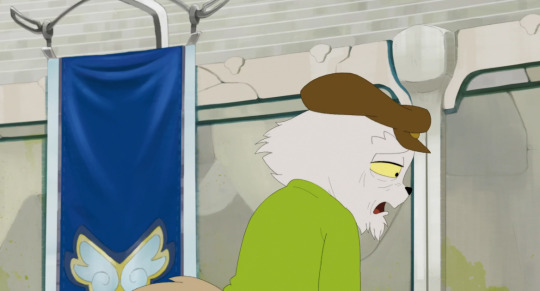

This is his worst nightmare. And all he can manage to do is fulfil one of Joris's wishes: call him by his actual name, like an equal.
And he really did try to raise him as an equal. Like a best friend. And he failed. Because that's an unattainable goal.
56 notes
·
View notes
Text
Works Corresponding To Words
Les Mis Letters reading club explores one chapter of Les Misérables every day. Join us on Discord, Substack - or share your thoughts right here on tumblr - today's tag is #lm 1.1.4
His conversation was gay and affable. He put himself on a level with the two old women who had passed their lives beside him. When he laughed, it was the laugh of a schoolboy. Madame Magloire liked to call him Your Grace [<i>Votre Grandeur</i>]. One day he rose from his armchair, and went to his library in search of a book. This book was on one of the upper shelves. As the bishop was rather short of stature, he could not reach it. “Madame Magloire,” said he, “fetch me a chair. My greatness [<i>grandeur</i>] does not reach as far as that shelf.”
One of his distant relatives, Madame la Comtesse de Lô, rarely allowed an opportunity to escape of enumerating, in his presence, what she designated as “the expectations” of her three sons. She had numerous relatives, who were very old and near to death, and of whom her sons were the natural heirs. The youngest of the three was to receive from a grandaunt a good hundred thousand livres of income; the second was the heir by entail to the title of the Duke, his uncle; the eldest was to succeed to the peerage of his grandfather. The Bishop was accustomed to listen in silence to these innocent and pardonable maternal boasts. On one occasion, however, he appeared to be more thoughtful than usual, while Madame de Lô was relating once again the details of all these inheritances and all these “expectations.” She interrupted herself impatiently: “Mon Dieu, cousin! What are you thinking about?” “I am thinking,” replied the Bishop, “of a singular remark, which is to be found, I believe, in St. Augustine,—‘Place your hopes in the man from whom you do not inherit.’”
At another time, on receiving a notification of the decease of a gentleman of the country-side, wherein not only the dignities of the dead man, but also the feudal and noble qualifications of all his relatives, spread over an entire page: “What a stout back Death has!” he exclaimed. “What a strange burden of titles is cheerfully imposed on him, and how much wit must men have, in order thus to press the tomb into the service of vanity!”
He was gifted, on occasion, with a gentle raillery, which almost always concealed a serious meaning. In the course of one Lent, a youthful vicar came to D——, and preached in the cathedral. He was tolerably eloquent. The subject of his sermon was charity. He urged the rich to give to the poor, in order to avoid hell, which he depicted in the most frightful manner of which he was capable, and to win paradise, which he represented as charming and desirable. Among the audience there was a wealthy retired merchant, who was somewhat of a usurer, named M. Géborand, who had amassed two millions in the manufacture of coarse cloth, serges, and woollen galloons. Never in his whole life had M. Géborand bestowed alms on any poor wretch. After the delivery of that sermon, it was observed that he gave a sou every Sunday to the poor old beggar-women at the door of the cathedral. There were six of them to share it. One day the Bishop caught sight of him in the act of bestowing this charity, and said to his sister, with a smile, “There is M. Géborand purchasing paradise for a sou.”
When it was a question of charity, he was not to be rebuffed even by a refusal, and on such occasions he gave utterance to remarks which induced reflection. Once he was begging for the poor in a drawing-room of the town; there was present the Marquis de Champtercier, a wealthy and avaricious old man, who contrived to be, at one and the same time, an ultra-royalist and an ultra-Voltairian. This variety of man has actually existed. When the Bishop came to him, he touched his arm, <i>“You must give me something, M. le Marquis.”</i> The Marquis turned round and answered dryly, <i>“I have poor people of my own, Monseigneur.” “Give them to me,”</i> replied the Bishop.
One day he preached the following sermon in the cathedral:—
“My very dear brethren, my good friends, there are thirteen hundred and twenty thousand peasants’ dwellings in France which have but three openings; eighteen hundred and seventeen thousand hovels which have but two openings, the door and one window; and three hundred and forty-six thousand cabins besides which have but one opening, the door. And this arises from a thing which is called the tax on doors and windows. Just put poor families, old women and little children, in those buildings, and behold the fevers and maladies which result! Alas! God gives air to men; the law sells it to them. I do not blame the law, but I bless God. In the department of the Isère, in the Var, in the two departments of the Alpes, the Hautes, and the Basses, the peasants have not even wheelbarrows; they transport their manure on the backs of men; they have no candles, and they burn resinous sticks, and bits of rope dipped in pitch. That is the state of affairs throughout the whole of the hilly country of Dauphiné. They make bread for six months at one time; they bake it with dried cow-dung. In the winter they break this bread up with an axe, and they soak it for twenty-four hours, in order to render it eatable. My brethren, have pity! behold the suffering on all sides of you!”
Born a Provençal, he easily familiarized himself with the dialect of the south. He said, <i>“En bé! moussu, sés sagé?”</i> as in lower Languedoc; <i>“Onté anaras passa?”</i> as in the Basses-Alpes; <i>“Puerte un bouen moutu embe un bouen fromage grase,”</i> as in upper Dauphiné. This pleased the people extremely, and contributed not a little to win him access to all spirits. He was perfectly at home in the thatched cottage and in the mountains. He understood how to say the grandest things in the most vulgar of idioms. As he spoke all tongues, he entered into all hearts.
Moreover, he was the same towards people of the world and towards the lower classes. He condemned nothing in haste and without taking circumstances into account. He said, “Examine the road over which the fault has passed.”
Being, as he described himself with a smile, an <i>ex-sinner</i>, he had none of the asperities of austerity, and he professed, with a good deal of distinctness, and without the frown of the ferociously virtuous, a doctrine which may be summed up as follows:—
“Man has upon him his flesh, which is at once his burden and his temptation. He drags it with him and yields to it. He must watch it, check it, repress it, and obey it only at the last extremity. There may be some fault even in this obedience; but the fault thus committed is venial; it is a fall, but a fall on the knees which may terminate in prayer.
“To be a saint is the exception; to be an upright man is the rule. Err, fall, sin if you will, but be upright.
“The least possible sin is the law of man. No sin at all is the dream of the angel. All which is terrestrial is subject to sin. Sin is a gravitation.”
When he saw everyone exclaiming very loudly, and growing angry very quickly, “Oh! oh!” he said, with a smile; “to all appearance, this is a great crime which all the world commits. These are hypocrisies which have taken fright, and are in haste to make protest and to put themselves under shelter.”
He was indulgent towards women and poor people, on whom the burden of human society rest. He said, “The faults of women, of children, of the feeble, the indigent, and the ignorant, are the fault of the husbands, the fathers, the masters, the strong, the rich, and the wise.”
He said, moreover, “Teach those who are ignorant as many things as possible; society is culpable, in that it does not afford instruction gratis; it is responsible for the night which it produces. This soul is full of shadow; sin is therein committed. The guilty one is not the person who has committed the sin, but the person who has created the shadow.”
It will be perceived that he had a peculiar manner of his own of judging things: I suspect that he obtained it from the Gospel.
One day he heard a criminal case, which was in preparation and on the point of trial, discussed in a drawing-room. A wretched man, being at the end of his resources, had coined counterfeit money, out of love for a woman, and for the child which he had had by her. Counterfeiting was still punishable with death at that epoch. The woman had been arrested in the act of passing the first false piece made by the man. She was held, but there were no proofs except against her. She alone could accuse her lover, and destroy him by her confession. She denied; they insisted. She persisted in her denial. Thereupon an idea occurred to the attorney for the crown. He invented an infidelity on the part of the lover, and succeeded, by means of fragments of letters cunningly presented, in persuading the unfortunate woman that she had a rival, and that the man was deceiving her. Thereupon, exasperated by jealousy, she denounced her lover, confessed all, proved all.
The man was ruined. He was shortly to be tried at Aix with his accomplice. They were relating the matter, and each one was expressing enthusiasm over the cleverness of the magistrate. By bringing jealousy into play, he had caused the truth to burst forth in wrath, he had educed the justice of revenge. The Bishop listened to all this in silence. When they had finished, he inquired,—
“Where are this man and woman to be tried?”
“At the Court of Assizes.”
He went on, “And where will the advocate of the crown be tried?”
A tragic event occurred at D—— A man was condemned to death for murder. He was a wretched fellow, not exactly educated, not exactly ignorant, who had been a mountebank at fairs, and a writer for the public. The town took a great interest in the trial. On the eve of the day fixed for the execution of the condemned man, the chaplain of the prison fell ill. A priest was needed to attend the criminal in his last moments. They sent for the curé. It seems that he refused to come, saying, “That is no affair of mine. I have nothing to do with that unpleasant task, and with that mountebank: I, too, am ill; and besides, it is not my place.” This reply was reported to the Bishop, who said, <i>“Monsieur le Curé is right: it is not his place; it is mine.”</i>
He went instantly to the prison, descended to the cell of the “mountebank,” called him by name, took him by the hand, and spoke to him. He passed the entire day with him, forgetful of food and sleep, praying to God for the soul of the condemned man, and praying the condemned man for his own. He told him the best truths, which are also the most simple. He was father, brother, friend; he was bishop only to bless. He taught him everything, encouraged and consoled him. The man was on the point of dying in despair. Death was an abyss to him. As he stood trembling on its mournful brink, he recoiled with horror. He was not sufficiently ignorant to be absolutely indifferent. His condemnation, which had been a profound shock, had, in a manner, broken through, here and there, that wall which separates us from the mystery of things, and which we call life. He gazed incessantly beyond this world through these fatal breaches, and beheld only darkness. The Bishop made him see light.
On the following day, when they came to fetch the unhappy wretch, the Bishop was still there. He followed him, and exhibited himself to the eyes of the crowd in his purple camail and with his episcopal cross upon his neck, side by side with the criminal bound with cords.
He mounted the tumbril with him, he mounted the scaffold with him. The sufferer, who had been so gloomy and cast down on the preceding day, was radiant. He felt that his soul was reconciled, and he hoped in God. The Bishop embraced him, and at the moment when the knife was about to fall, he said to him: “God raises from the dead him whom man slays; he whom his brothers have rejected finds his Father once more. Pray, believe, enter into life: the Father is there.” When he descended from the scaffold, there was something in his look which made the people draw aside to let him pass. They did not know which was most worthy of admiration, his pallor or his serenity. On his return to the humble dwelling, which he designated, with a smile, as <i>his palace</i>, he said to his sister, <i>“I have just officiated pontifically.”</i>
Since the most sublime things are often those which are the least understood, there were people in the town who said, when commenting on this conduct of the Bishop, <i>“It is affectation.”</i>
This, however, was a remark which was confined to the drawing-rooms. The populace, which perceives no jest in holy deeds, was touched, and admired him.
As for the Bishop, it was a shock to him to have beheld the guillotine, and it was a long time before he recovered from it.
In fact, when the scaffold is there, all erected and prepared, it has something about it which produces hallucination. One may feel a certain indifference to the death penalty, one may refrain from pronouncing upon it, from saying yes or no, so long as one has not seen a guillotine with one’s own eyes: but if one encounters one of them, the shock is violent; one is forced to decide, and to take part for or against. Some admire it, like de Maistre; others execrate it, like Beccaria. The guillotine is the concretion of the law; it is called <i>vindicate</i>; it is not neutral, and it does not permit you to remain neutral. He who sees it shivers with the most mysterious of shivers. All social problems erect their interrogation point around this chopping-knife. The scaffold is a vision. The scaffold is not a piece of carpentry; the scaffold is not a machine; the scaffold is not an inert bit of mechanism constructed of wood, iron and cords.
It seems as though it were a being, possessed of I know not what sombre initiative; one would say that this piece of carpenter’s work saw, that this machine heard, that this mechanism understood, that this wood, this iron, and these cords were possessed of will. In the frightful meditation into which its presence casts the soul the scaffold appears in terrible guise, and as though taking part in what is going on. The scaffold is the accomplice of the executioner; it devours, it eats flesh, it drinks blood; the scaffold is a sort of monster fabricated by the judge and the carpenter, a spectre which seems to live with a horrible vitality composed of all the death which it has inflicted.
Therefore, the impression was terrible and profound; on the day following the execution, and on many succeeding days, the Bishop appeared to be crushed. The almost violent serenity of the funereal moment had disappeared; the phantom of social justice tormented him. He, who generally returned from all his deeds with a radiant satisfaction, seemed to be reproaching himself. At times he talked to himself, and stammered lugubrious monologues in a low voice. This is one which his sister overheard one evening and preserved: “I did not think that it was so monstrous. It is wrong to become absorbed in the divine law to such a degree as not to perceive human law. Death belongs to God alone. By what right do men touch that unknown thing?”
In course of time these impressions weakened and probably vanished. Nevertheless, it was observed that the Bishop thenceforth avoided passing the place of execution.
M. Myriel could be summoned at any hour to the bedside of the sick and dying. He did not ignore the fact that therein lay his greatest duty and his greatest labor. Widowed and orphaned families had no need to summon him; he came of his own accord. He understood how to sit down and hold his peace for long hours beside the man who had lost the wife of his love, of the mother who had lost her child. As he knew the moment for silence he knew also the moment for speech. Oh, admirable consoler! He sought not to efface sorrow by forgetfulness, but to magnify and dignify it by hope. He said:—
“Have a care of the manner in which you turn towards the dead. Think not of that which perishes. Gaze steadily. You will perceive the living light of your well-beloved dead in the depths of heaven.” He knew that faith is wholesome. He sought to counsel and calm the despairing man, by pointing out to him the resigned man, and to transform the grief which gazes upon a grave by showing him the grief which fixes its gaze upon a star.
14 notes
·
View notes
Text

Projet "Mimbulus Mimbletonia" FORUM HP SUR L'ACADEMIE D'ILVERMORNY
Après des mois de préparation, de réflexions intenses (et un soupçon de fumée cérébrale magique), j’ai le plaisir de vous présenter un projet RPG qui me tient particulièrement à cœur : un forum inspiré de l’univers d’Harry Potter, plongé au cœur de l’académie magique d’Ilvermorny.
Au menu : 🔮 Système de Dragots : Chaque RP posté vous rapportera des Dragots, notre monnaie magique. Dépensez-les pour débloquer des avantages, des comptes supplémentaires ou d’autres surprises pour enrichir votre expérience de jeu.
🔮 Un univers inédit : Ici, pas de Harry, Ron ou Hermione ! Les personnages originaux ne sont pas jouables, et certains éléments ont été réinventés pour offrir une vision fraîche et immersive de l’univers magique.
🔮 Bienvenue en Amérique : Oubliez Poudlard, direction l'école d’Ilvermorny et son ambiance unique. Explorez les couloirs enchantés de l’académie, le MACUSA, l’Hôpital Magique, et bien d’autres lieux imaginés pour vous plonger dans ce monde ensorcelant.
Le forum est presque prêt à ouvrir ses portes, et j’ai hâte de partager cette aventure avec vous. Mais avant de sortir vos plumes et vos balais (oui, c’est une expression bancale mais pardonnez-moi 🤭), vos avis, suggestions et idées seraient d’une grande aide pour peaufiner cette expérience magique.
Envie d’être informé dès l’ouverture ? Laissez un hibou (ou un mot magique) en réponse à ce message, et je vous tiendrai au courant dès que les inscriptions seront ouvertes.
La magie d’Ilvermorny n’attend plus que vous ! 🕯 Une peu de contexte :
✨ I. L'Exode des Mangemorts : Après la guerre qui opposa le monde magique à Voldemort��et ses disciples, une véritable chasse aux traîtres fut lancée. Tous ceux qui avaient soutenu, de près ou de loin, le Seigneur des Ténèbres furent pourchassés, qu’ils l’aient fait par conviction ou simplement pour survivre. Ce climat de panique donna naissance à ce que les livres d’histoire appellent désormais « la Grande Purge », une tâche indélébile marquant le plus grand fiasco de l’histoire de la magie.
Les procès arbitraires et les arrestations injustifiées devinrent monnaie courante, divisant profondément la communauté magique. Certaines grandes familles furent anéanties, tandis que d’autres, plus chanceuses, réussirent à fuir vers des contrées offrant un asile, comme les États-Unis. Le ministre de la magie américain de l’époque, opportuniste, y vit une occasion de recruter des sorciers de sang pur pour servir ses intérêts politiques et personnels.
De nombreuses familles s’établirent ainsi définitivement en Amérique, trouvant refuge sur ce vaste continent. Aujourd’hui, il n’est pas rare de croiser d’anciens partisans de Vous-Savez-Qui en territoire nord-américain. Bien qu’ils soient fichés par les autorités magiques, leur liberté de mouvement reste préoccupante. Leurs enfants, élevés dans ces préceptes sombres, pourraient un jour faire renaître une nouvelle menace.
✨ II - La Naissance des "Veilleurs" : Le choix du Président américain d'accueillir les anciens disciples des ténèbres ne fit pas l’unanimité. Nombreuses furent les voix qui s’élevèrent contre cette décision, invoquant les dangers potentiels pour la communauté magique. Le président, cependant, défendit son choix en se cachant derrière le principe de la présomption d’innocence.
Face à cette situation, des groupes de défense spontanés émergèrent à travers le pays, tentant de protéger le quotidien des sorciers. Toutefois, ces milices disparurent progressivement, la menace tant redoutée ne se matérialisant jamais. Au fil des années, le calme revint, et l’idée que les Mangemorts, privés de Voldemort, n’étaient plus une réelle menace, s’imposa.
Cependant, un petit groupe de sorciers, convaincu que le danger subsiste, continua à agir dans l’ombre. Se faisant appeler les Veilleurs, ils scrutent les moindres faits et gestes de leurs ennemis, persuadés qu’un nouveau complot se trame. Leur organisation, secrète et bien implantée, cherche à influencer des postes clés du monde magique pour garder un contrôle discret mais efficace. Mais une question persiste : le mal provient-il uniquement des Mangemorts ? Et si une autre menace se profilait à l’horizon ?
✨ III - Selena Hawthorne, "la Dame d’Ilvermorny," : Selena Hawthorne, connue comme "la Dame d’Ilvermorny," dirige l’académie avec une autorité et une élégance qui forcent le respect. Mariée à Alarick Hawthorne, un homme politiqueinfluent, le couple incarne aux yeux du monde magique l’image du mariage parfait. Pourtant, derrière les portes closes, leur relation est loin d’être idyllique. Selena et Alarick se livrent une guerre ouverte, chacun utilisant l’autre pour atteindre ses propres objectifs. Malgré tout, ils partagent un point commun : leur opposition à l’idéologie des Mangemorts.
Cependant, leurs visions divergent profondément. Selena prône l’égalité entre sorciers et sorcières, croyant en une société où les talents individuels et les valeurs priment sur les privilèges de naissance. Alarick, en revanche, rêve d’un monde dominé par les sorciers dotés de dons spéciaux, sans considération pour la pureté du sang. Pour lui, la supériorité réside dans les capacités, et non dans les lignées.
Cette dualité alimente les tensions au sein de l’académie. Alors que Selena s’efforce d’instaurer un environnement équilibré pour ses élèves, les ambitions d’Alarick menacent de semer la discorde, même indirectement. Si Selena semble détenir un avantage stratégique grâce à son poste de directrice, les forces en jeu, tant au sein de l’école que dans le monde extérieur, risquent de compliquer sa mission.
Ilvermorny devient ainsi un champ de bataille idéologique. Les Veilleurs, qui soutiennent Selena, tentent de contrer toute influence des Mangemorts, mais l’école elle-même n’est pas à l’abri des idées funestes qui circulent. Selena réussira-t-elle à préserver l’avenir des jeunes sorciers sous sa responsabilité, ou l’école est-elle déjà gangrenée par des forces qu’elle ne peut contrôler ?
11 notes
·
View notes
Text
Partage accessibilité et neurodiversité

Le site neurodiversity design regroupe beaucoup de contenus pour améliorer les interfaces graphiques web en pensant aux personnes neuroatypiques. Le tout est en anglais mais la traduction automatique n'est pas trop mal.
Il propose :
Des conseils graphiques : j'aime particulièrement la partie bouton et interface, le tout reliés aux théories UX connues (trop bien pour apprendre)
Des personaes : ce sont des fiches utilisateurices qui regroupent leur identité, leurs besoins, leurs aspirations, leurs craintes, leurs blocages, leur matériel... Généralement, c'est utilisé pour pouvoir imagine, créer et rectifier des parcours sur des sites web - entre autre chose - en ayant toujours en tête les personnes qu'on cible.
Souvent, quand on créé des personaes pour un nouveau site, une application ou même un forum, dans le but de se mettre "dans la peau de", il est rare de penser à avoir des personaes handicapés ou ayant des besoins précis en terme de sensibilité ou autre. Et quand on y pense, ces personaes peuvent être réduit à leur handicap ou stéréotypés, en mettant totalement de côté les aspirations, besoins en dehors de leur handicap. Ces fiches là font les deux et je les trouve vraiment cool.
Y'a même un personae avec des éléments "négatifs", chose que je n'avais jamais vu comme "recherche des signes de vulnérabilité chez les autres". Ce qui permet de penser à un cas souvent oublié dans l'UX : tout le monde n'est pas sympa et gentil sur le web et quand cette personne veut faire du mal avec notre produit, elle trouvera un moyen. On sors un peu du cadre "Neuroatypies et design" mais si le sujet vous intéresse, je vous conseille le super livre (en anglais encore, sorry :/) "Design for safety", d'Eva PenzeyMoog.
Dans le même cadre de personaes, les guidelines accessibilité d'Orange en ont aussi, en français ! Elles sont d'avantages ciblés sur les handicaps et les besoins que cela peut entrainer mais on a quand même un contexte :)
52 notes
·
View notes
Text
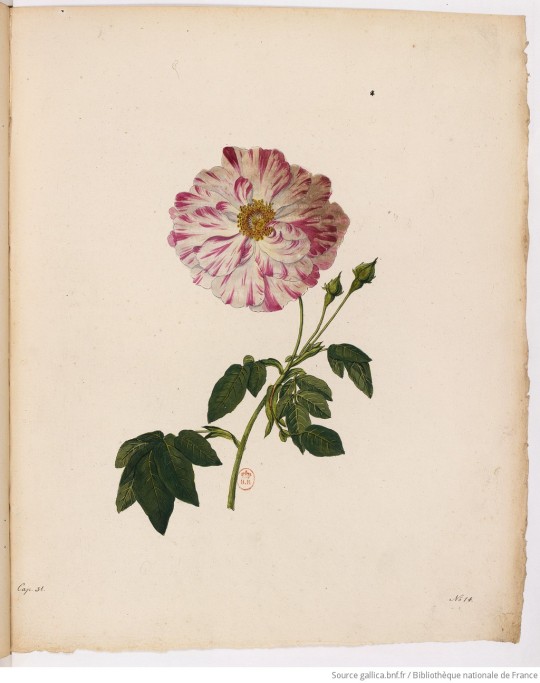
Rosa versicolor taken from 'Les Roses Dessinées et Enluminées d'après Nature' by Carl Gottlob Rössig (1752-1806).
Bibliothèque nationale de France, département Réserve des livres rares.
232 notes
·
View notes
Text
Les mots du silence sont des mots très rares qu'on ne trouve dans aucun livre, qui restent souvent coincés dans la poitrine, qui se glissent parfois jusque dans la gorge mais n'arrivent jamais dans la bouche...
Les mots du silence ne sont pas faits pour être entendus par les oreilles...
Les mots du silence se murmurent avec des gestes infimes et des mimiques immobiles.Ils se lisent avec les yeux fermés, s'écoutent avec le coeur, se gardent au fond de soi, dans la douceur des émotions...
Jacques Salomé

61 notes
·
View notes
Text
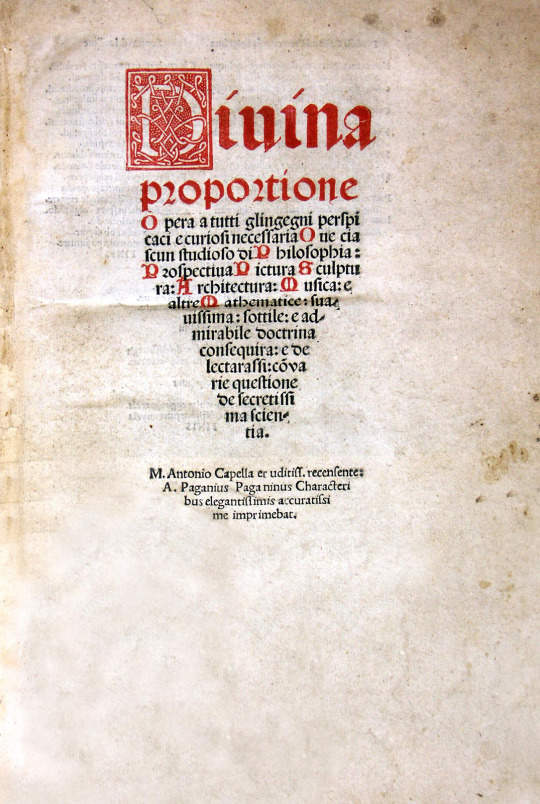
Luca Pacioli, Divina proportione opera a tutti glingegni perspicaci… necessaria, que ciascun studioso di philosophia, prospectiva pictura, sculptura, architectura, musica, e altre mathematice, suavissima, sottile e admirabile doctrine consequira, e delectarassi, con varie questione de secretissima scientia, (frontispiece), M. Antonio Capella eruditiss. recensente, Venetiis, A. Paganius Paganinus characteribus elegantissimis accuratissime imprimebat, 1509 [Castello Sforzesco, Milano. Bibliothèque nationale de France, département Réserve des livres rares, Paris]
#art#mathematics#geometry#book#luca pacioli#fra luca pacioli#castello sforzesco#bibliothèque nationale de france#1500s
17 notes
·
View notes